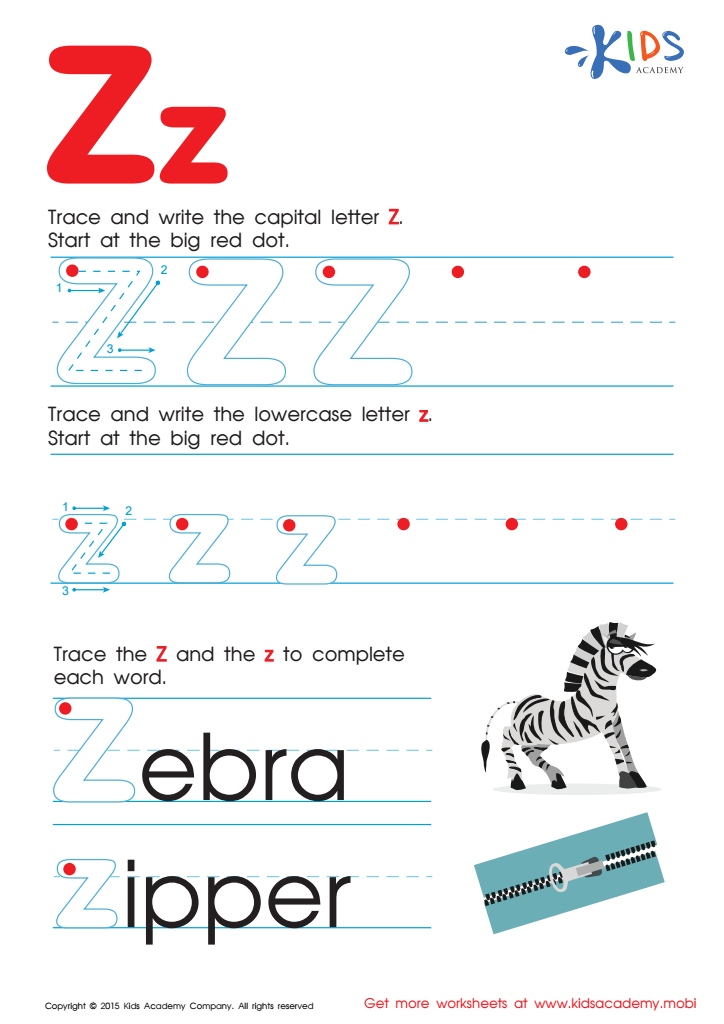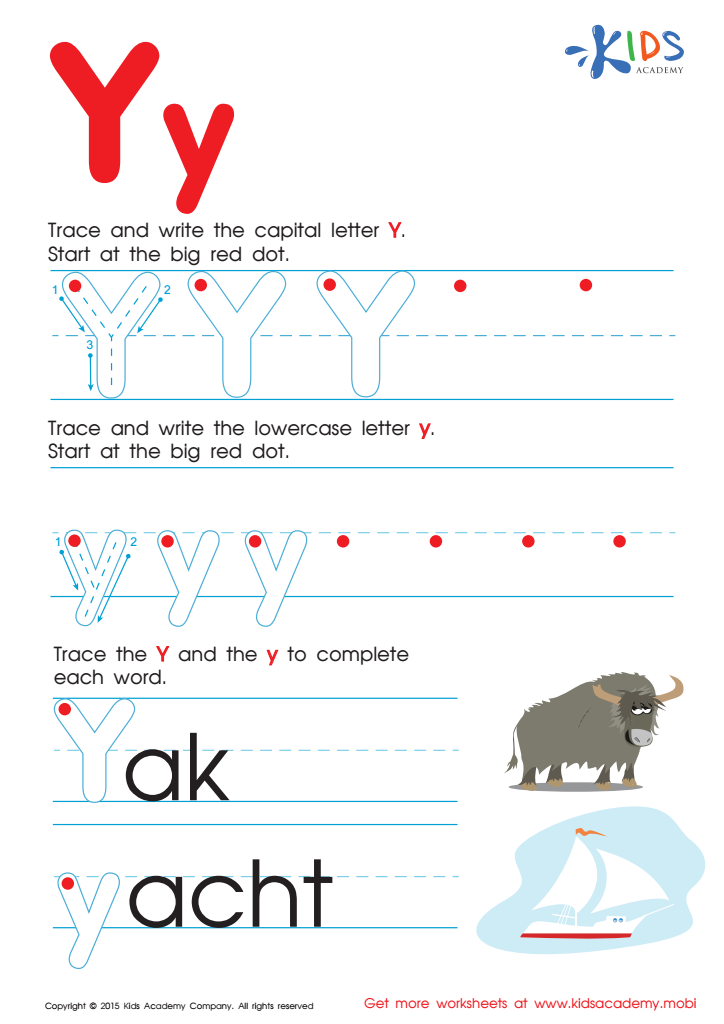Alphabet Recognition Extra Challenge ABC Order Worksheets for Ages 5-7
3 filtered results
-
From - To
Boost your child's alphabet recognition skills with our "Alphabet Recognition Extra Challenge ABC Order Worksheets" designed specifically for ages 5-7! These engaging worksheets provide an interactive way for young learners to master the order of letters while tracing, identifying, and completing fun activities. Perfect for classroom or home use, these exercises encourage critical thinking and strengthen literacy foundations. Children will enjoy learning through vibrant visuals and activities that promote both enjoyment and education. Ideal for teaching kids to recognize and sequence letters, these worksheets ensure they are well-equipped for future reading adventures! Download and inspire a love for learning today!


Letter A Tracing Page


Letter Z Tracing Page


Letter Y Tracing Page
Parents and teachers should prioritize the Alphabet Recognition Extra Challenge ABC Order for children aged 5-7 because these skills form the foundation for effective reading and writing. Mastery of the alphabet is crucial for literacy development, as it aids in phonemic awareness—the understanding of how letters correlate with sounds. By engaging with activities that emphasize alphabetical order, children enhance their ability to organize words, a skill that is vital not just for spelling but also for navigating dictionaries, glossaries, and digital resources.
Furthermore, early exposure to structured educational challenges promotes cognitive development, fostering problem-solving and critical thinking skills. Engaging with the alphabet in structured ways also caters to diverse learning styles, accommodating kinesthetic learners through interactive games or visual learners with charts and flashcards.
Finally, the sense of accomplishment on mastering alphabet recognition and order boosts children's confidence, making them more enthusiastic learners. In a world increasingly driven by information retrieval, these foundational skills will not only assist in their academic journey but also prepare them for effective communication in future learning environments. By supporting these challenges, parents and teachers empower children to develop essential skills that will shape their educational experiences and overall academic success.
 Assign to My Students
Assign to My Students














